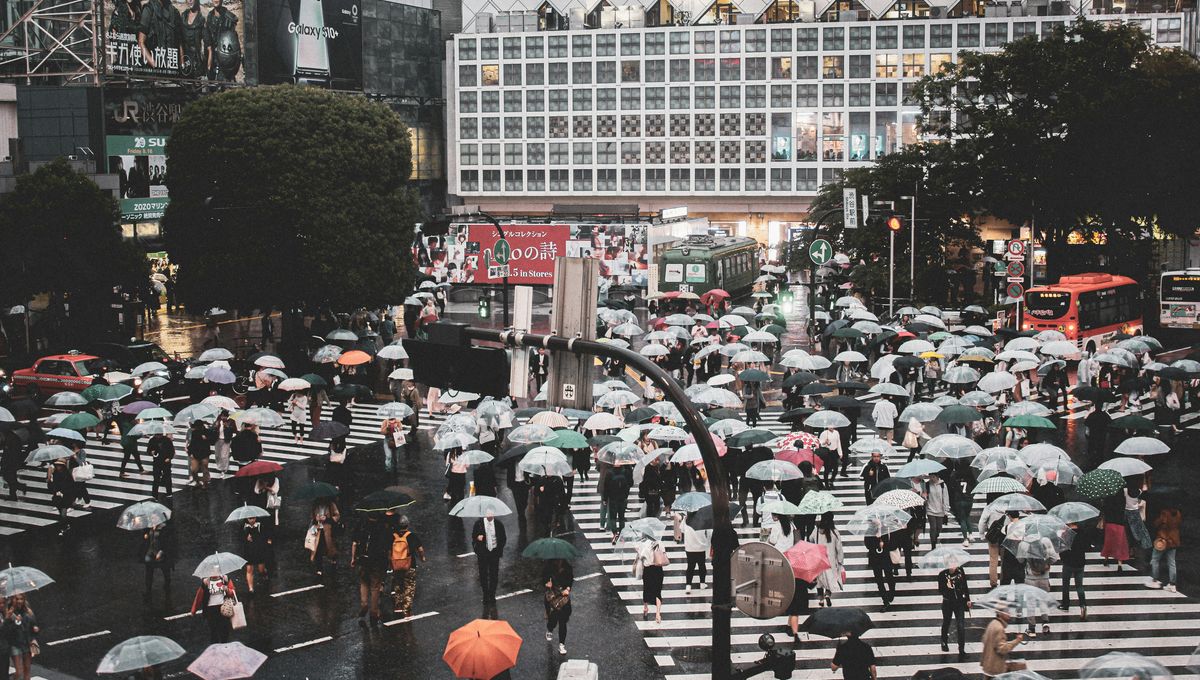
“The real problem of humanity is the following: We have Palaeolithic emotions, medieval institutions, and godlike technology.” That’s a quote from Edward O. Wilson, the renowned father of sociobiology. Since he delivered these wise words over a decade ago, our technology has only ramped up further, yet our ancient biology has remained unchanged.
In a new study, researchers from Loughborough University and the University of Zurich have consolidated this idea.
They found that many of the stresses and health problems we face in the modern age can be linked to the fact that our species spent the vast majority of its evolutionary history in natural environments, while most of us now live in high-tech worlds filled with rushing cars, flashing lights, pollution, and glowing screens.
“In our ancestral [environments], we were well-adapted to deal with acute stress to evade or confront predators. The lion would come around occasionally, and you had to be ready to defend yourself—or run. The key is that the lion goes away again,” Colin Shaw, study author and co-leader of the Human Evolutionary EcoPhysiology research group at the University of Zurich, said in a statement.
Today, the old threats of predators or warring clans are largely gone, but new annoyances have emerged in the form of overcrowded streets, traffic jams, work pressures, social media, and so on. Though they seem worlds apart, all of these stressors activate the same biological systems.
“Our body reacts as though all these stressors were lions,” explained Shaw.
The key difference is that modern stressors do not disappear if we react to them. If we confront or evade a ferocious lion, the problem resolves, one way or another. However, being acutely aware of noisy cars, pinging phone notifications, and internet “pile-ons” doesn’t fix anything; it just leaves us in a buzzing state of tension and low-level alarm.
This subtle, unrelenting stress takes a significant toll on our health, the researchers say. In their study, they argue it manifests in multiple ways: impairing reproductive function, contributing to infertility and declining sperm counts; compromising the immune system, leading to allergies and autoimmune diseases; disrupting cognitive function, causing slower development and accelerated decline; and reducing physical performance, resulting in decreased strength and endurance.
“There’s a paradox where, on the one hand, over the last three hundred years we’ve created tremendous wealth, comfort and healthcare for a lot of people on the planet,” Shaw commented, “but on the other hand, some of these industrial achievements are having quite detrimental effects on our immune, cognitive, physical and reproductive functions.”
This problem is only set to deepen on a global scale. Around 45 percent of Earth’s 8.2 billion people currently live in cities, but that figure is set to rise to two-thirds of the world’s population by 2050. That means millions upon millions more people are set to experience the subtle perils of the modern, industrialized world and face the health implications they bring.
The solution, the researchers say, is to better understand these dangers and discover new ways to curtail them. This could be approached from many angles, but at its core, it should involve a fundamental rethinking of our relationship with nature and the big city.
“One approach is to fundamentally rethink our relationship with nature—treating it as a key health factor and protecting or regenerating spaces that resemble those from our hunter-gatherer past,” said Shaw in another statement.
“Our research can identify which stimuli most affect blood pressure, heart rate or immune function, for example, and pass that knowledge on to decision-makers,” Shaw explains. “We need to get our cities right—and at the same time regenerate, value and spend more time in natural spaces.”
The study is published in the journal Biological Reviews.
Source Link: Human Evolution Isn't Fast Enough To Keep Up With Pace Of The Modern World